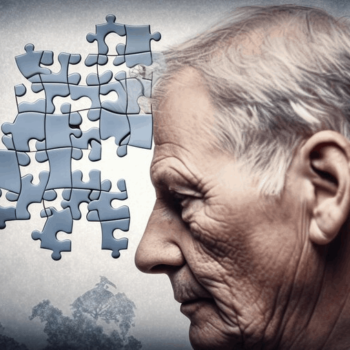Dementia
Dementia Treatment & Counseling
Our goal at Restorative Brain Center is to help you conquer your Dementia. Although this condition comes in many different forms, we offer a range of dementia treatment options for patients living in the greater Kansas City, MO area. Treatment options can be tailored to each patient’s specific symptoms and needs.
Dementias have no known treatments that can reverse symptoms or improve cognitive function. TMS has been shown to improve cognitive and Parkinsonian symptoms in clinical trials and can be used as an adjunct to existing medications. Restorative Brain Center has used TMS on dozens of dementia patients since October 2019. The average reversal was between 2-3.5 years, with the best MOCA improvement of 6 points after 55-60 daily treatments. TMS can treat areas that overlap with psychiatric conditions like depression, anxiety, and OCD. Using FDG-PET scans, a neurologist identifies areas of low brain metabolism. These areas are then mapped and may be targeted with fMRI. The best time to treat Alzheimer’s is in the early stages. Symptoms may not emerge for 2-5 years later. If treated between pre-Alzheimer’s and mid-stage, clinically significant improvement can be seen. Unlike Aducanumab (Aduhelm), there are no side effects like cerebral hemorrhage, confusion, dizziness, or monthly IV infusions. Non-invasive r-TMS improves cognitive and executive function. Restorative Brain Center is planning a clinical trial to gauge the effectiveness of r-TMS on dementia and medications. Treatment is daily for 2.5-3 months. The goal is to help patients remain independent and avoid costly assisted living or long-term care. In some cases, r-TMS can postpone disease progression if treatment begins early. MOCA and FDG-PET scans are used to review patient progress and adjust treatment protocols.
Cost to treat: $15,000 vs. cost to treat with IV drug: $28,000
Please call 816-820-8483. We use a sliding scale to help the vast majority of patients get into treatment.
Dementia is a term used to describe a group of symptoms affecting memory, thinking and social abilities severely enough to interfere with daily life. It is caused by abnormal brain changes that trigger a decline in thinking skills, also known as cognitive abilities. These changes can also affect behavior, feelings and relationships.
Dementia is generally caused by damage to or disruptions of brain cells, particularly in the cerebral cortex (the part of the brain which controls memory, perception, consciousness, and language). In some cases, this damage or disruption isn’t permanent, causing reversible dementia conditions that can be slowed or cured with proper treatment.
There are several common causes of dementia including Alzheimer’s disease, Vascular dementia which may occur in people who have long-term high blood pressure, severe hardening of the arteries, or several small strokes and Parkinson’s disease.
If you regularly suffer from the following symptoms, you may be suffering from dementia
- Memory loss
- Difficulty in communication
- Reduced ability to organize, plan, reason, or solve problems
- Difficulty handling complex tasks
- Confusion and disorientation
- Difficulty with coordination and motor functions
- Loss of or reduced visual perception
- Changes in personality and behavior
- Depression
- Anxiety
- Hallucinations
- Mood swings
- Agitation
- Apathy

